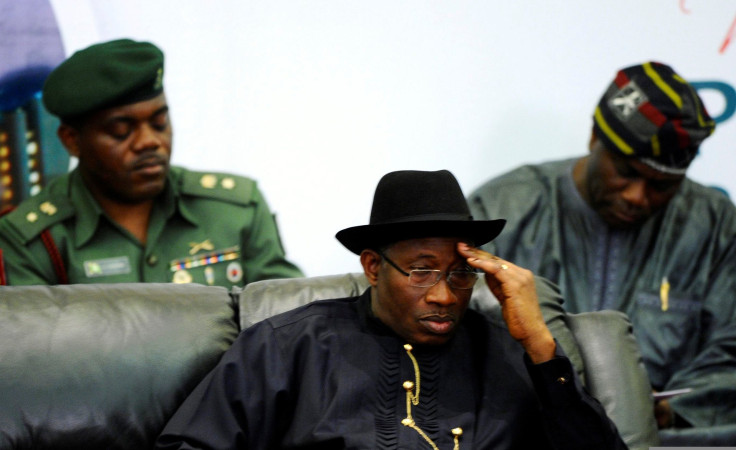Nigerian Government Calls Off Deal With Boko Haram For Release Of Schoolgirls

Update 5:10 p.m. EDT:
Nigeria's military knows where the more than 200 girls abducted by Boko Haram are but has ruled out using force to rescue them, the state news agency quoted Chief of Defence Staff Air Marshal Alex Badeh as saying on Monday.
Seven weeks since Boko Haram militants abducted more than 200 girls taking exams in a secondary school in the remote northeastern village of Chibok and little is known of their whereabouts or what exactly the military is doing to get them out.
"The good news for the parents of the girls is that we know where they are, but we cannot tell you," Badeh was quoted as saying. "But where they are held, can we go there with force? We can't kill our girls in the name of trying to get them back."
Original story:
The Nigerian government has called off a deal with Boko Haram to return some of the kidnapped schoolgirls in exchange for the release of group members in custody, the BBC reports.
The 223 girls were snatched from their school on April 14, sparking global outrage as the hashtag #bringbackourgirls went viral on the Internet, and the topic dominated discussions at the World Economic Forum on Africa, held in Abuja, Nigeria earlier this month.
Soon after the kidnapping, the kidnappers released a video in which Boko Haram's leader claimed he would convert the girls to Islam and sell them as brides. Another video shows at least a hundred of the students dressed in hijabs and reciting verses from the Koran.
The Daily Mail reported that Nigerian officials recruited local journalist Ahmad Salkida, who was born in the Boko Haram-dominated state of Borno, to help broker a deal with the militant group to return the girls. He reportedly traveled by taxi to a forest camp to speak with leaders, and reported to The Daily Mail that the girls seemed “adequately fed and sheltered.”
But Nigerian officials reportedly declined at the 11th hour.
Earlier this month, Interior Minister Abba Moro said that “as far as this government is concerned, the option of [the] swap of innocent citizens with people who have taken arms against the country… is not on the table,” according to a BBC video.
Boko Haram is an Islamist militant group that dominates a poverty-stricken region in northeastern Nigeria. The name translates roughly to “Western education is forbidden,” in the local Hausa language, and members claim they seek to remove Western influence from Nigeria and impose Islamic law.
Since 2009 they have been responsible for thousands of deaths, and the violence caused President Goodluck Jonathan to declare a state of emergency in those states since 2011, a status that the parliament extended by six months on May 16 at his request of Jonathan, according to NBC.
On the same day, the president cancelled a planned visit to Chibok, the city where the girls were kidnapped, and instead flew to Paris to meet with global leaders. There, officials from Benin, Cameroon, Niger and Chad joined Jonathan and French President Francois Hollande to coordinate a “global and regional action plan,” that involved “co-ordinating intelligence, sharing information, border surveillance,” and other measures, according to a BBC report.
Besides the high-profile kidnapping, Boko Haram has claimed responsibility for explosions, mass shootings and other violence in the same region. Since the kidnapping, the group has killed at least 480 people, according to a Reuters count. Last week, gunmen attacked three villages, killing at least 28 people, according to a report in The Guardian.
In that time, leaders from the United States, France and China has all sent various forms of support to Nigerian officials, to help track down the militant group and rescue the girls.
© Copyright IBTimes 2024. All rights reserved.






















